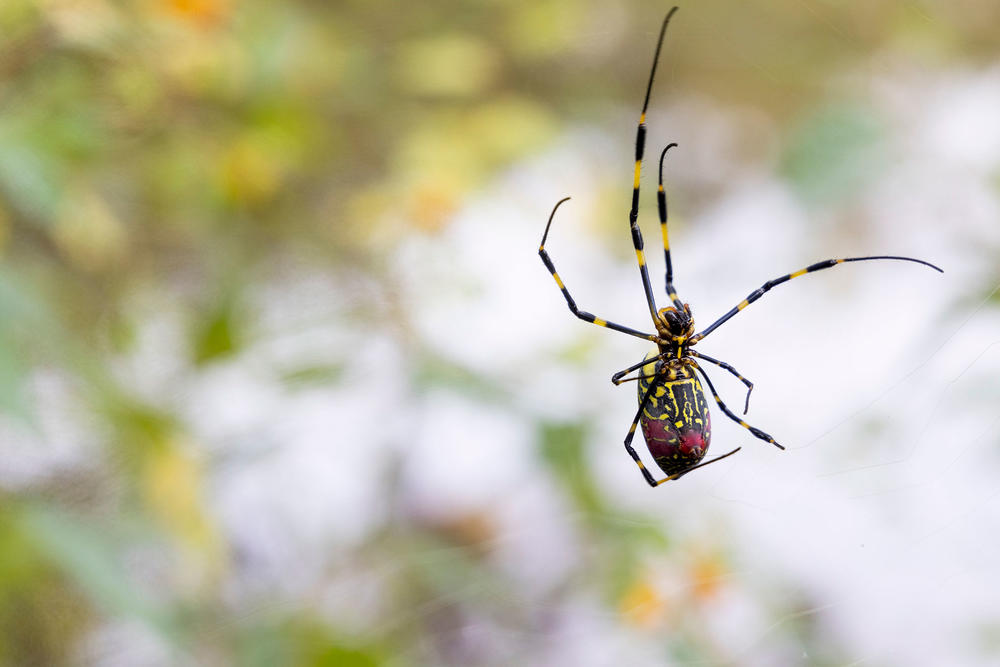
Caption
When University of Georgia researchers exposed more than 30 spiders to a disturbance, the Joro spiders sat completely still for more than an hour.
Credit: Peter Frey / UGA

When University of Georgia researchers exposed more than 30 spiders to a disturbance, the Joro spiders sat completely still for more than an hour.
A new study finds Joro spiders might be the shyest spiders ever documented.
Their gentle temperament might explain why the giant yellow and black spiders are so good at living in urban areas.
During testing, researchers at the University of Georgia puffed air in front of more than 30 spiders to learn how they would respond to a disturbance. They also collected similar “air puff response” data for five other North American species from other published studies.
In response, most spiders froze for a minute or two before moving again. But the Joro was still for over an hour.
"Yeah, we were pretty surprised at this outcome ourselves," said Andy Davis a research scientist at UGA and the lead researcher on the study. "In fact, initially we thought we were doing the test wrong because nothing was happening."
Davis said he asked his undergraduate researcher and co-author of the study, Amitesh Anerao, to sit and watch the Joros until they finally moved.
They also found that spiders in the same genus as Joros remained immobile for a similar amount of time as the Joro. And like the Joro, these species are known to be urban tolerant.
Davis said this unusual way of dealing with a disturbance compared to other spiders could be why residents of North Georgia spot Joros and their webs in between power lines, in parking lots or even on top of gas station pumps.
“The Joro spiders, they react by simply not reacting, so to speak," Davis said. "They’ll just freeze and wait until the disturbance goes away. And so if you think about it that way, that could be one way that they actually can tolerate living in a disturbed area where they get disturbed all the time, but they just don’t do anything about it.”
Future research will examine how the spiders' shyness has allowed them to adapt to live with humans.